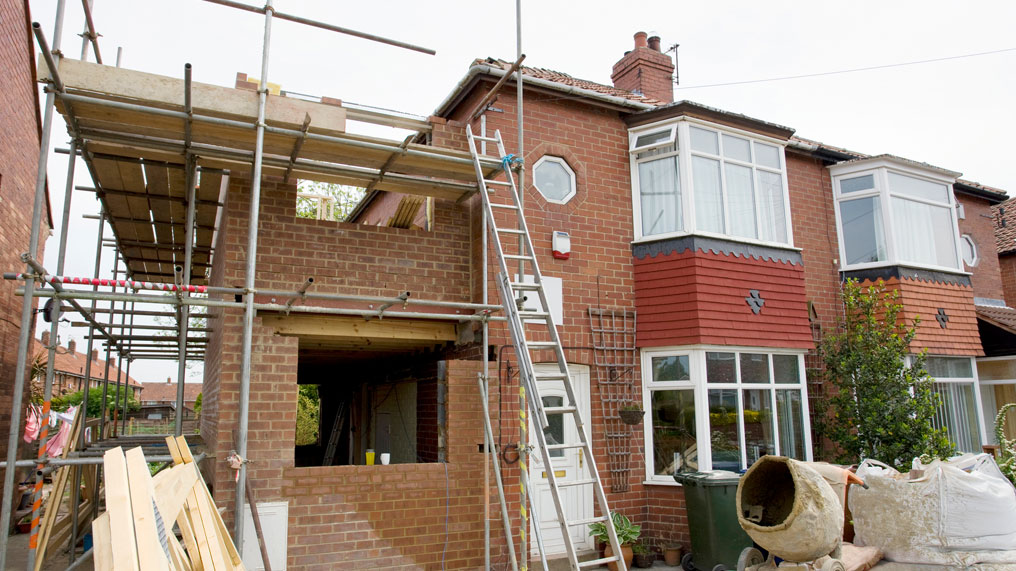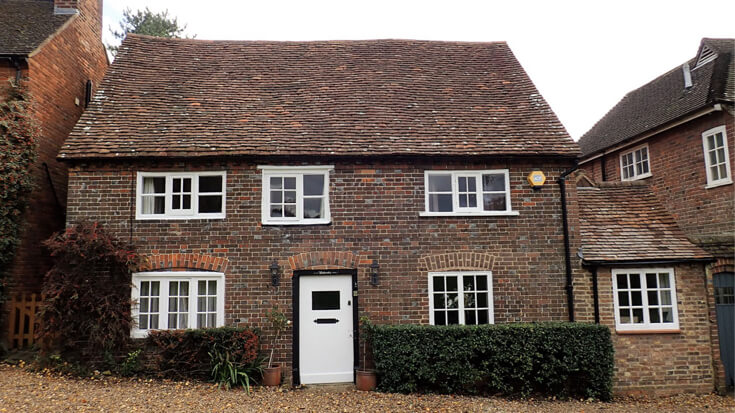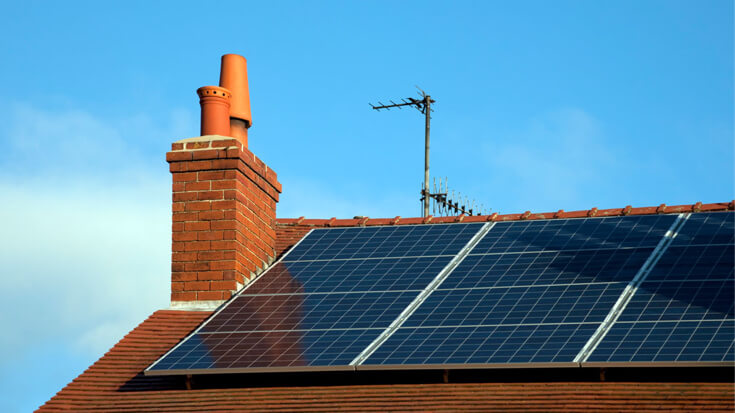Rising energy bills can be a real pain in the pocket, which is why more and more people are looking at ways to produce their own energy or cut down how much energy they use.
We’ve rounded up some options for you to consider.
Solar panels
Solar panels use energy from the sun to create electrical power, which you can connect up to your home’s main electricity supply.
Panels are likely to set you back around £6000, according to the Energy Saving Trust. However, fitting a 4kW solar system could help you generate up to 3,400 kilowatt hours (kWh) of electricity per year.
That's a lot of energy. According to Ofgem, a typical household in England, Scotland and Wales uses 2,700 kWh of electricity in a year.
However, not all houses are suitable for solar panels, and you almost certainly won’t be able to fit them if you live in a listed property. Panels are best suited to south-facing properties with no trees or other buildings shading the roof.
Wind power
You’ve probably seen the giant white wind turbines in coastal areas used to generate electricity, but if you have enough space, you can install a smaller version on your own land.
The blades of the turbines harness the power of the wind so it can be used to produce electricity. The only cost to you is to get the turbine installed, but once you’ve done this, it should generate more than enough energy to power all your electrical appliances and lights.
Turbines can either be mounted on a pole and be free-standing, or you can put one on the roof of your property. Ideally, you’ll need to put it somewhere where you have a pretty persistent breeze – a hilltop is ideal.
A roof-mounted wind turbine will set you back around £3,000, while a pole-mounted system can cost you anything between £10,000 and £30,000. Pole-mounted turbines might cost much more, but they are far more efficient than building-mounted turbines and will produce a lot more electricity.
Heat pumps
Heat pumps can extract heat from the ground or air and supply you with heating and hot water.
They last for up to 20 years, unlike gas boilers that have a fifteen-year lifespan. It costs around £5,000 to instal a heat pump in your home (with the BUS grant), but after that, you'll start saving around £380 a year on your energy bills.
Running costs will depend how warm you want your home to be, how big it is, and how well insulated it is. You’ll still have to pay electricity bills because heat pumps are powered by electricity, but your savings will come from the fuel you’re replacing.
Tips to save on your energy bills
If you can’t fit solar panels, a wind turbine or a heat pump at your home, don’t worry – there are other ways you can save energy and help cut your energy bills. They may seem simple, but the savings can really add up over time.
Cut your shower time
Who doesn't love a long, hot shower? But, if you’re looking to save money, you need to watch how long you spend under the hose.
If you stick to a four-minute shower (just enough time to belt out your favourite song), you can save £60 a year.
Ditch the dryer
According to the Energy Saving Trust, you could save £50 a year if you dry your clothes naturally instead of using your tumble dryer. Go old school and use your washing line or a clothes horse – it’s better for the environment, too.
Beware the vampires
Gadgets like phones, smart speakers, and TVs are known as vampire devices because they drain power when you leave them plugged in or on standby.
It’s a bit of extra effort turning them on and off every day, but it could save you £45 a year.
Hit the lights
You can tell the kids to remember to turn the lights off until you’re blue in the face, but they’ll never do it.
The good news is, you can save up to £145 a year by switching to LED lights.
Lighting makes up 11% of the average UK household’s overall energy consumption, so next time a bulb goes out, replace it with an LED.
Need more help with your energy bills?
The rising cost of living means many people are struggling to pay their energy bills.
If you’re worried about finding the money for your gas and electricity bills, there is help out there.
The government has a number of schemes in place to support you financially or offer you advice.




